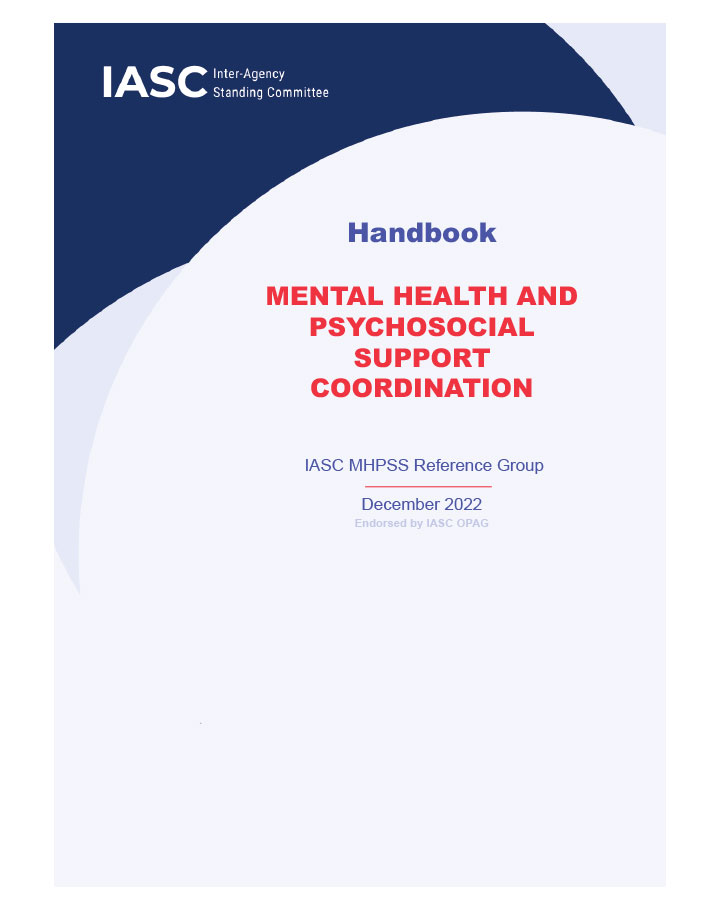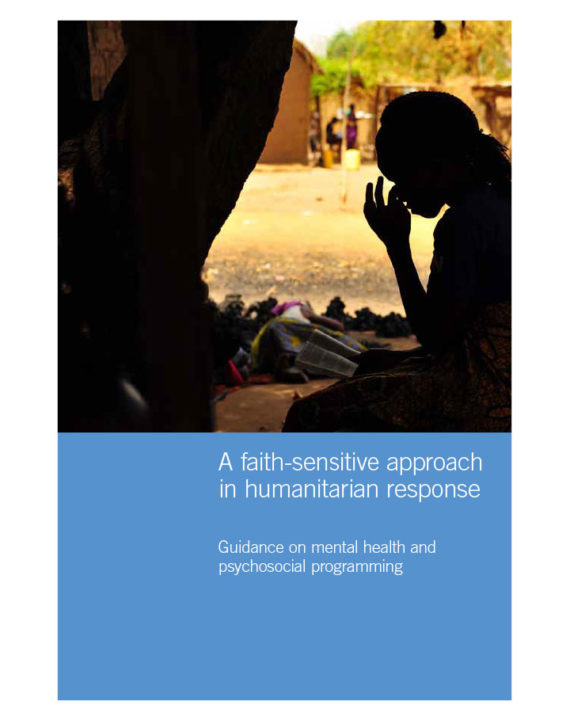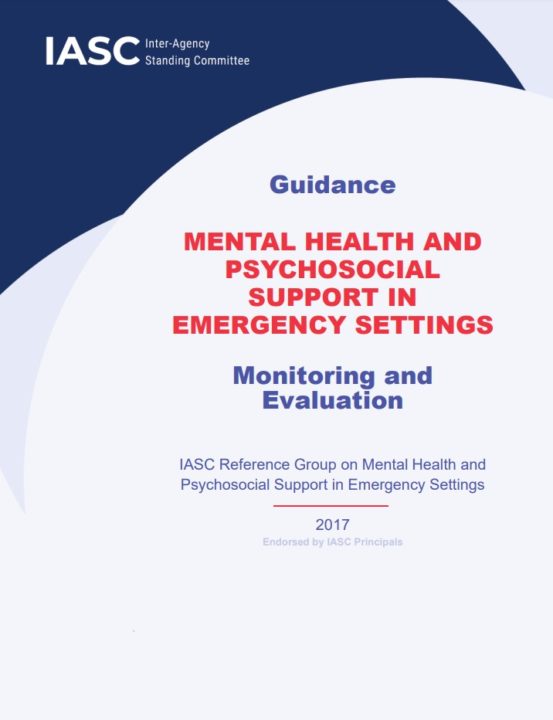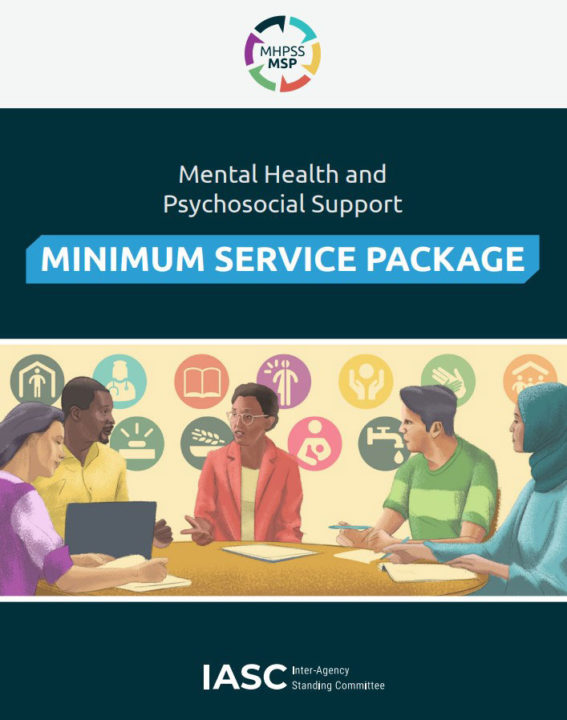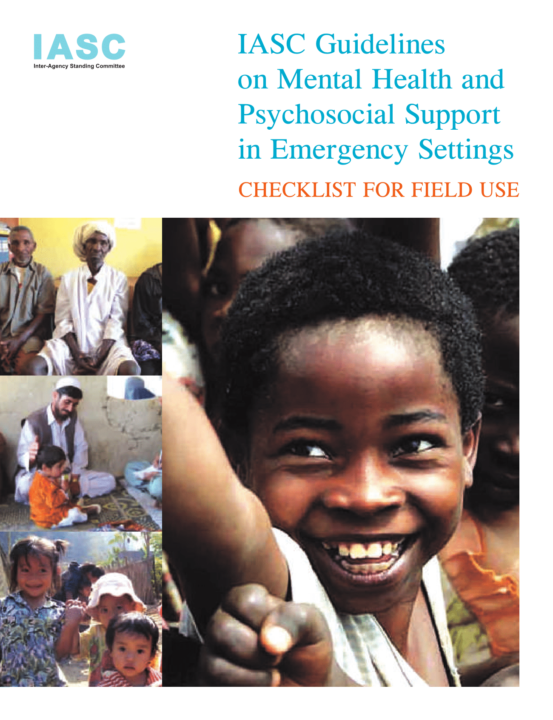The Handbook of MHPSS Coordination provides standard guidance on how to best to support well-coordinated and multisectoral MHPSS responses that are predictable, accountable, equitable, efficient and effective.
What is the purpose of this handbook?
There is growing consensus around the need for appropriate MHPSS coordination and there are many strong examples of effective MHPSS coordination in emergency settings around the world.
This handbook outlines consensus-based guidance for members and facilitators of MHPSS TWGs and actors working at country level. It identifies the ingredients for effective coordination by building on good practices from past emergencies and provides tools and useful resources.
It contains:
- a description of common coordination structures
- an outline of foundational skills and characteristics
- a set of core actions for MHPSS TWGs
- across settings.
It assumes that the reader is beginning with a basic knowledge of the IASC MHPSS Guidelines (2007). It also emphasizes the central role of local actors and affected people, who must be actively identified and engaged. While the handbook is specifically targeted towards country-level actors, it may also be useful at the regional or headquarters level for organizations supporting or facilitating MHPSS TWGs in countries where they operate. It can also be useful in supporting advocacy by highlighting gaps in a response and providing avenues to demonstrate the impact of coordination activities.


